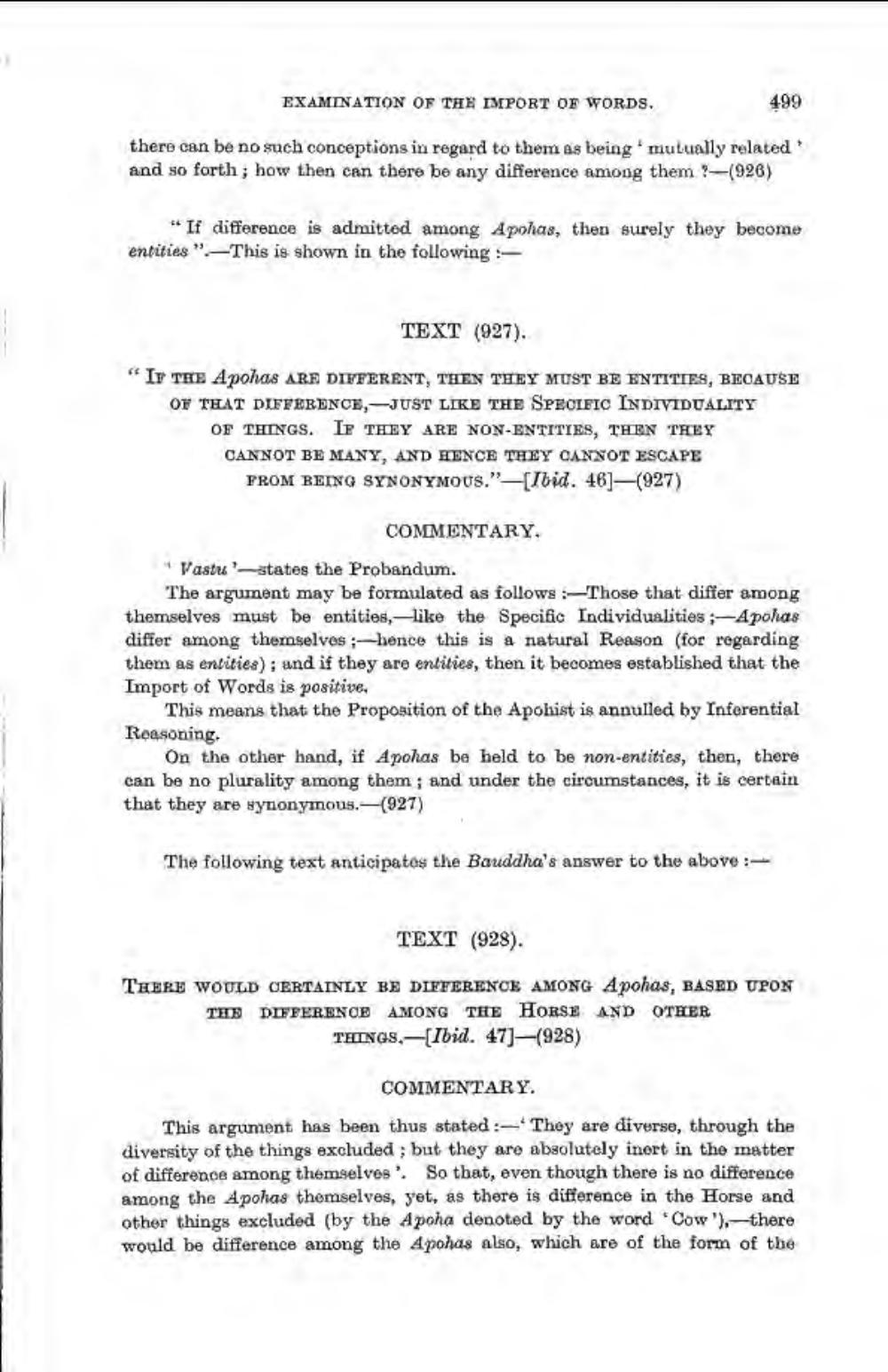________________
EXAMINATION OF THE IMPORT OF WORDS.
499
there can be no such conceptions in regard to them as being mutually related and so forth; how then can there be any difference among them !-(926)
** If difference is admitted among Apohas, then surely they become entities": -This is shown in the following:
TEXT (927).
"IF THE Apohas ARF DIFFERENT, THEN THEY MUST BE ENTITIES, BECAUSE OF THAT DIFFERENCE, JUST LIKE THE SPECIFIC INDIVIDUALITY
OF THINGS. IF THEY ARE NON-ENTITIES, THEN THEY CANNOT BE MANY, AND HENCE THEY CANNOT ESCAPE
FROM BEING SYNONYMOUS."-[Ibid. 46]—(927)
COMMENTARY
"Vastus-states the Probandum.
The argument may be formulated as follows :-Those that differ among themselves must be entities, like the Specific Individualities;- Apohas differ among themselves ;-hence this is a natural Reason (for regarding them as entities); and if they are entities, then it becomes established that the Import of Words is positive.
This means that the Proposition of the Apohist is annulled by Inferential Reasoning,
On the other hand, if Apohas be held to be non-entities, then, there can be no plurality among them; and under the circumstances, it is certain that they are synonymous.-(927)
The following text anticipates the Bauddha's answer to the above :
TEXT (928).
THERE WOULD CERTAINLY BE DIFFERENCE AMONG Apohas, BASED UPON THE DIFFERENCE AMONG THE HORSE AND OTHER
THINGS. [Ibid. 47]-(928)
COMMENTARY.
This argument has been thus stated :- They are diverse, through the diversity of the things excluded; but they are absolutely inert in the matter of difference among themselves'. So that, even though there is no difference among the Apohas themselves, yet, as there is difference in the Horse and other things excluded (by the Apoha denoted by the word "Cow'), there would be difference among the Apohas also, which are of the form of the




